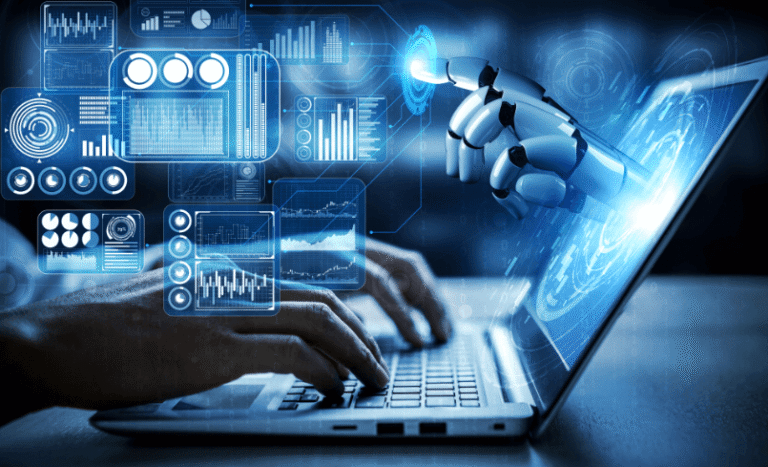Technology in 2025: The Key Innovations Transforming Our World
Technology has become the backbone of modern life, influencing how we communicate, work, travel, and even think. In 2025, digital innovation is accelerating faster than ever before. Breakthroughs in artificial intelligence (AI), 5G networks, cloud computing, blockchain, and green technology are driving change across industries. This article explores the top technology trends of 2025, their applications, and their impact on the future.
Artificial Intelligence: The Power Behind Modern Innovation
Artificial Intelligence is one of the most significant drivers of digital transformation.
- Healthcare: AI assists doctors in diagnosing diseases early and performing robotic surgeries.
- Business: AI helps companies automate repetitive tasks, analyze big data, and make better decisions.
- Everyday use: Smart assistants, chatbots, and recommendation systems make life easier.
Generative AI tools are also revolutionizing content creation, design, and marketing. By 2030, AI is expected to contribute more than $15 trillion to the global economy.
Cloud Computing: The Foundation of Digital Growth
Cloud computing has changed how businesses and individuals manage data.
- Flexibility: Companies can quickly scale IT resources to meet demand.
- Collaboration: Remote teams rely on cloud platforms for file sharing and video conferencing.
- Cost savings: Organizations avoid investing in expensive infrastructure.
Leading providers such as AWS, Microsoft Azure, and Google Cloud continue to innovate, making the cloud a critical tool for business success.
See also: The Future of Technology: Key Innovations Driving 2025
Internet of Things (IoT): Smarter Connections
The Internet of Things (IoT) connects billions of devices worldwide, creating networks that improve efficiency and quality of life.
- Smart homes: IoT devices like smart speakers, thermostats, and cameras provide convenience.
- Healthcare: Wearable devices track vital signs, helping doctors monitor patients remotely.
- Industry: IoT sensors reduce downtime by predicting machine failures.
In the future, smart cities will rely on IoT for traffic control, energy savings, and waste reduction.
Cybersecurity: Defending Against Digital Threats
As digital adoption grows, so do the risks. Cybersecurity is now a top priority for businesses and individuals alike.
- Threats: Ransomware, phishing, and identity theft are on the rise.
- Solutions: AI-powered security systems detect threats in real time.
- Best practices: Individuals should use strong passwords and two-factor authentication.
Cybersecurity will continue to expand as more devices become connected to the internet.
5G Technology: The Next Level of Connectivity
The rollout of 5G networks is transforming digital communication and infrastructure.
- Faster speeds: High-definition streaming, online gaming, and video calls without lag.
- Smart technology: Self-driving cars and remote healthcare depend on 5G.
- Low latency: Virtual reality (VR) and augmented reality (AR) require reliable, real-time connections.
5G will also support the metaverse, immersive online platforms, and advanced IoT solutions.
Blockchain: Beyond Cryptocurrency
Blockchain is best known for supporting Bitcoin, but its applications extend far beyond digital money.
- Finance: Blockchain enables decentralized finance (DeFi) and secure payments.
- Supply chain: Companies use blockchain to trace products and ensure authenticity.
- Healthcare: Patient records are stored securely to prevent fraud and data loss.
With the rise of Web3 and NFTs, blockchain is shaping a more transparent and decentralized internet.
Green Technology: Innovation for a Sustainable Future
Sustainability has become essential, and green technology is leading the way.
- Renewable energy: Solar, wind, and hydropower are replacing fossil fuels.
- Electric vehicles (EVs): Tesla, BYD, and Rivian are making clean transportation mainstream.
- Smart grids: Digital systems reduce energy waste and improve distribution.
Green technology ensures innovation aligns with protecting the planet. In 2025, it is no longer optional—it is necessary.
Emerging Technologies to Watch
Several emerging technologies are expected to define the next decade:
- Quantum computing: Solves complex problems far beyond the reach of traditional computers.
- Metaverse platforms: Create immersive virtual worlds for education, gaming, and business.
- Biotechnology: Gene editing and personalized medicine promise healthier, longer lives.
- Artificial General Intelligence (AGI): Future AI may reach human-level reasoning.
These technologies will bring opportunities, but also challenges that require ethical oversight.
Conclusion
Technology in 2025 is not just about convenience—it is shaping the future of humanity. From AI and cloud computing to 5G and blockchain, innovations are revolutionizing industries, economies, and daily life. At the same time, challenges like cybersecurity and sustainability remind us that technology must be used responsibly.
The future belongs to those who embrace innovation while maintaining balance—progress with safety, growth with responsibility, and speed with sustainability. Technology is not just shaping tomorrow; it is creating it today.




